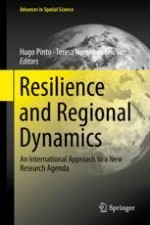2018 | OriginalPaper | Chapter
4. Economic Crisis, Turbulence and the Resilience of Innovation: Insights from the Atlantic Maritime Cluster
Authors : Hugo Pinto, Elvira Uyarra, Mercedes Bleda, Carla Nogueira, Helena Almeida
Published in: Resilience and Regional Dynamics
Publisher: Springer International Publishing
Activate our intelligent search to find suitable subject content or patents.
Select sections of text to find matching patents with Artificial Intelligence. powered by
Select sections of text to find additional relevant content using AI-assisted search. powered by
